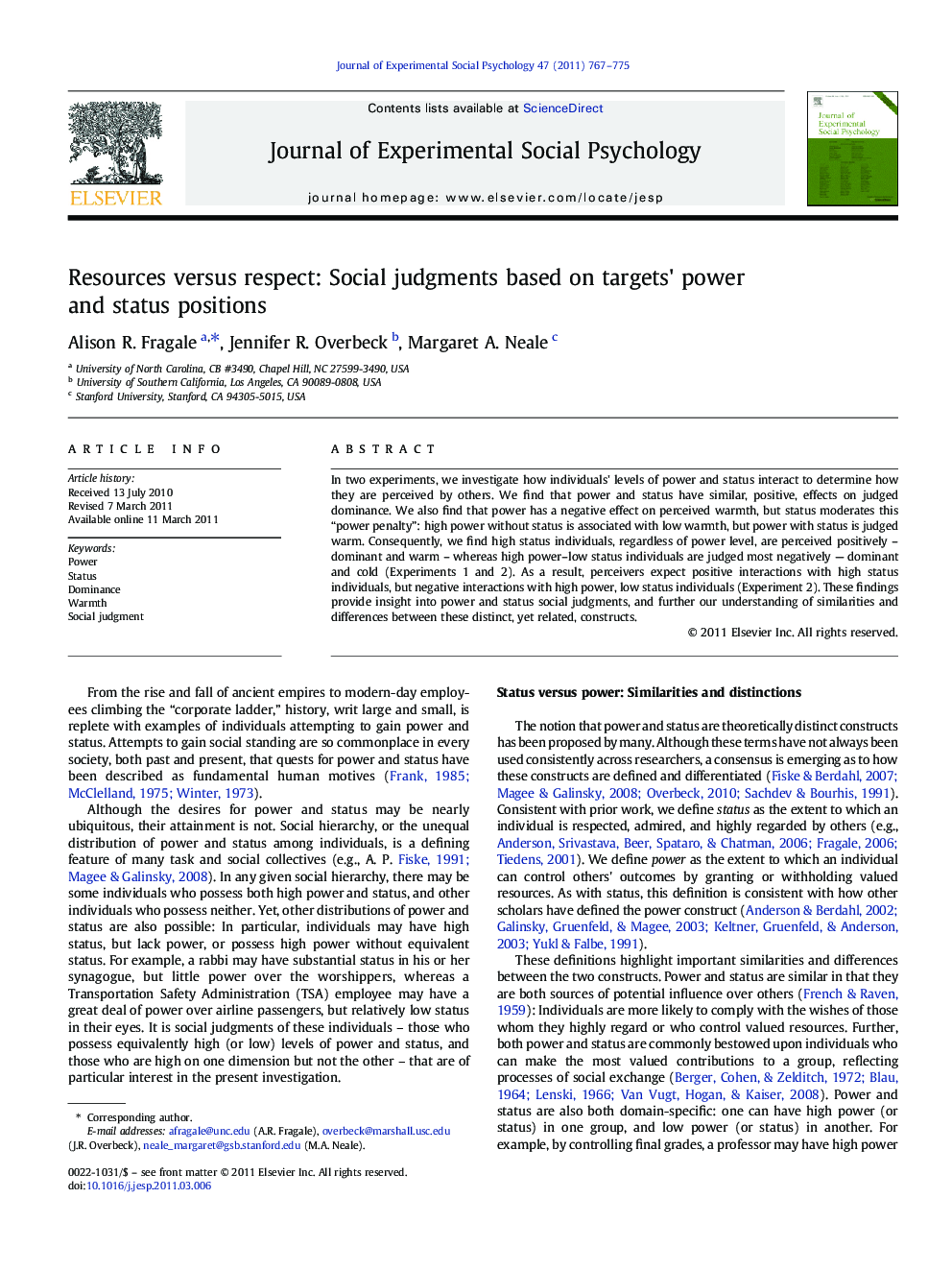| Article ID | Journal | Published Year | Pages | File Type |
|---|---|---|---|---|
| 948182 | Journal of Experimental Social Psychology | 2011 | 9 Pages |
In two experiments, we investigate how individuals' levels of power and status interact to determine how they are perceived by others. We find that power and status have similar, positive, effects on judged dominance. We also find that power has a negative effect on perceived warmth, but status moderates this “power penalty”: high power without status is associated with low warmth, but power with status is judged warm. Consequently, we find high status individuals, regardless of power level, are perceived positively – dominant and warm – whereas high power–low status individuals are judged most negatively — dominant and cold (Experiments 1 and 2). As a result, perceivers expect positive interactions with high status individuals, but negative interactions with high power, low status individuals (Experiment 2). These findings provide insight into power and status social judgments, and further our understanding of similarities and differences between these distinct, yet related, constructs.
Research Highlights► We explore social judgments based on individuals’ levels of power and status. ► High status people, regardless of power, are judged positively - dominant and warm. ► Low power-low status individuals are judged submissive and warm. ► High power- low status individuals are judged most negatively - dominant and cold.
